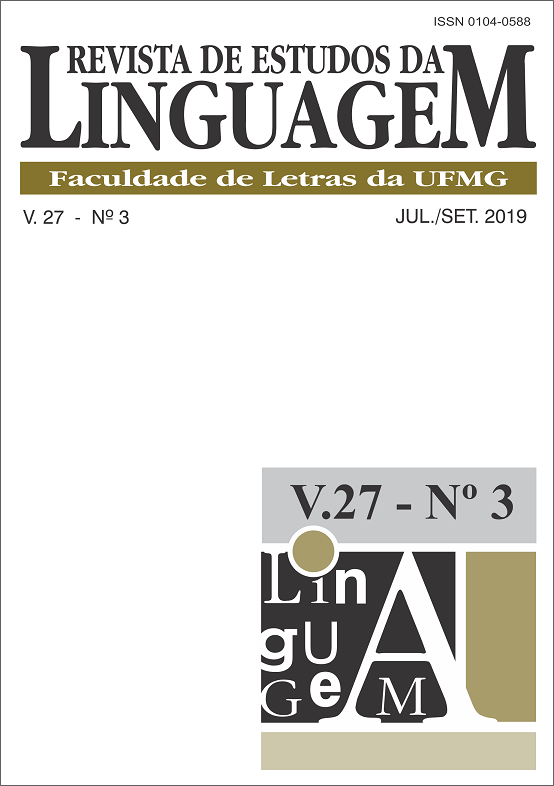Uma perspectiva etiológica sobre a função natural da Faculdade da Linguagem / An etiological perspective on the natural function of the Faculty of Language
DOI:
https://doi.org/10.17851/2237-2083.27.3.1531-1570Palavras-chave:
Faculdade da Linguagem, evolução, função natural, externalização da linguagem, explicação causal, biolinguística, Faculty of Language, evolution, natural function, externalization of language, causal explanation, biolinguistics.Resumo
Resumo: Neste artigo, discutimos, com base em Wright (1973), alguns pormenores que devem ser levados em consideração quando se busca falar em função dentro da biologia evolutiva. Tratamos, especificamente, de realizar uma acomodação da abordagem etiológica de função proposta pelo filósofo da biologia Larry Wright à tese do linguista Noam Chomsky e colaboradores acerca da natureza e da evolução da Faculdade da Linguagem (FL) na espécie humana, partindo do pressuposto de que a sua função natural não é a comunicação. Juntamente com Chomsky, defendemos que a comunicação deve ser mais apropriadamente compreendida como um subproduto, isto é, uma atividade/comportamento acidental relacionado à nossa FL, mas não sua função natural propriamente. Entendemos que a função da FL é primariamente interna à mente, e que a externalização de pensamento para fins de comunicação se deu posteriormente ao seu surgimento. Partindo de tal entendimento, o eixo da nossa argumentação está na ideia de que um evento no futuro não pode ter eficácia causal sobre um evento que o precede, de modo que parece inapropriada uma explicação funcional para a FL que a iguale com comunicação. A nossa discussão reforça o entendimento, segundo Chomsky, de que a função da FL é nos possibilitar, por um meio finito, infinitas combinações de símbolos estruturados hierarquicamente, sob a forma de o que Chomsky argumenta ser um sistema de pensamento sofisticado e único.
Palavras-chave: Faculdade da Linguagem; evolução; função natural; externalização da linguagem; explicação causal; biolinguística.
Abstract: In this paper, we discuss, based on Wright (1973), certain details that deserve to be taken into consideration when we want to talk about function in the field of the evolutionary biology. More specifically, we try to accommodate the etiological approach of function proposed by the biology philosopher Larry Wright to the thesis of the linguist Noam Chomsky and collaborators on the nature and evolution of the Faculty of Language (FL) in the human species, based on the assumption that its natural function is not communication. Along with Chomsky, we argue that communication should be more appropriately understood as a byproduct, that is, an accidental activity/behavior related to our FL, rather than its natural function properly. We understand that the function of the FL is primarily internal to the mind, and that the externalization of thought for communication purposes is ancillary. Based on this understanding, the focus of our argumentation is on the idea that an event in the future cannot have causal efficacy on an event that precedes it, so that any functional explanation for FL that equates the linguistic capacity with communication will be incorrect. Our discussion reinforces Chomsky’s understanding that FL’s function is to enable us to construct infinite combinations of hierarchically structured symbols, in the form of which Chomsky argues to be a sophisticated and unique system of thought.
Keywords: Faculty of Language; evolution; natural function; externalization of language; causal explanation; biolinguistics.





